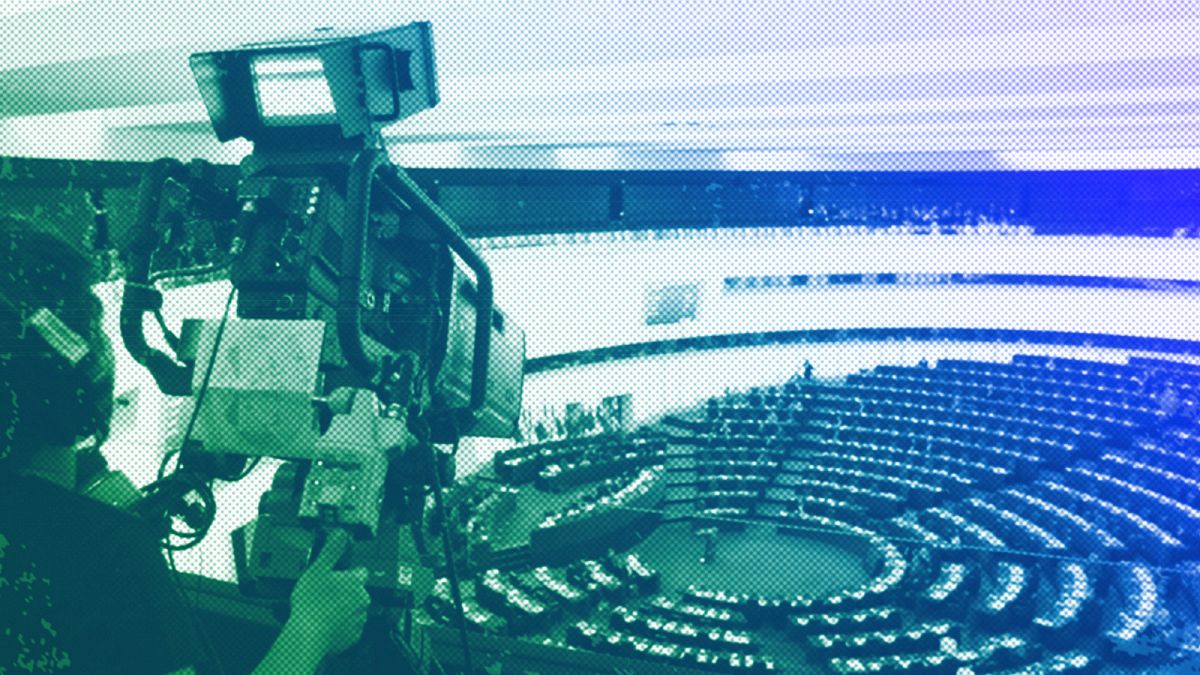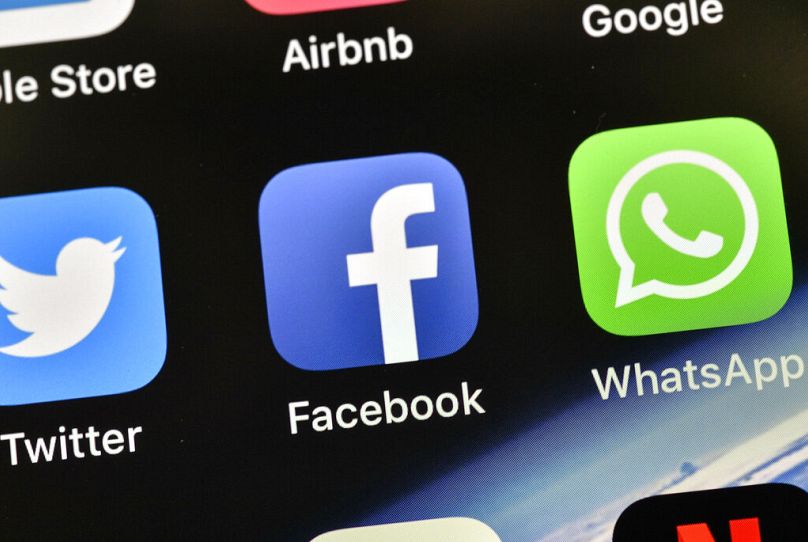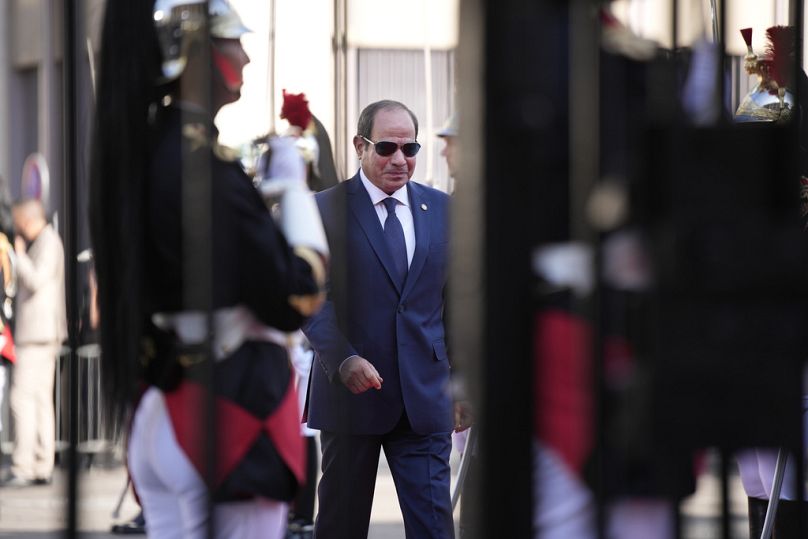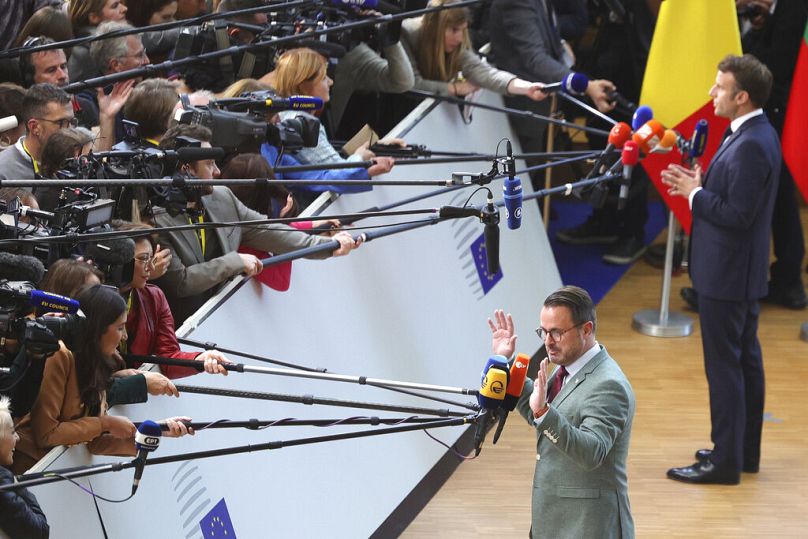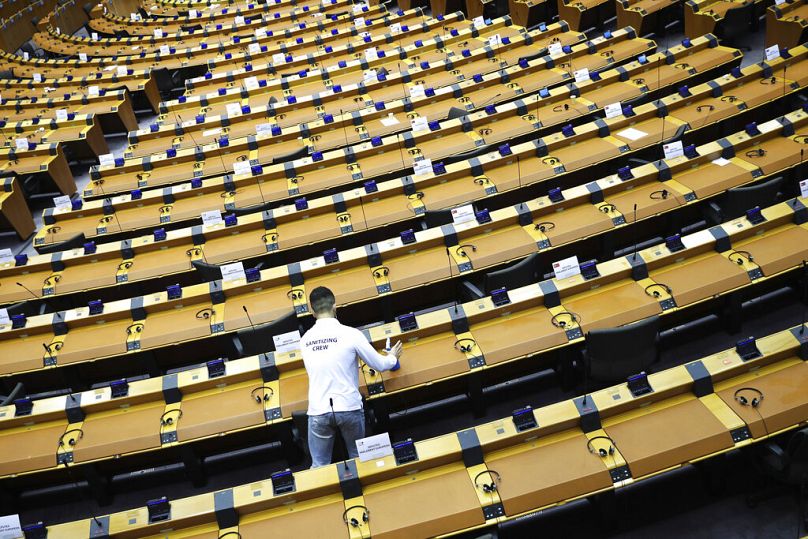In a democratic society, where we rely on journalists to act as public watchdogs, we cannot have them worried about becoming a target of government-sanctioned spying, Sebastian Becker, Chloé Berthélémy and Shubham Kaushik write.
The European Union considers itself a bastion of democracy and fundamental rights. Journalists and media freedom are the bedrock of these principles.
But a new regulation — that seeks to protect these very values — might fall short of its goal if the European Parliament refuses to walk the talk.
The European Media Freedom Act (EMFA) was proposed in 2022 to protect journalists and media providers and serve as a push for strengthening EU democracy.
It will become the first-ever law with binding rules on the use of surveillance technologies by European governments against journalists.
This week, the European Parliament will take a decisive vote on this regulation.
Spyware harms journalists and our democracy
The harms of spyware are well-known and documented. In 2021, we found out about the over 180 journalists in 20 countries, including Hungary, Spain and France, whose phones were infected by the Pegasus spyware, often by their own countries’ governments.
It became immensely clear that spyware lets governments get unchecked and unlimited access to a person’s communications, intimate photos, personal contacts and online behaviour data — everything without the knowledge of the victim.
What’s worse, spyware can bypass all digital security features that journalists rely on — including encryption — and turn a phone into a real-time spying device.
In a world where such dangerous hacking tools can be so easily acquired on the market and deployed by governments with little to no scrutiny, there are almost no online spaces left where journalists can feel safe and ensure source confidentiality.
The need for a full ban on spyware in any law that seeks to protect journalists is inarguable.
EU governments use 'national security' as a carte blanche
But this isn’t sitting right with some EU member states who want to continue to be able to abuse spyware.
During the legislative debates, France demanded that EU countries should be allowed to force the disclosure of sources, arrest, detain, put under surveillance and even deploy spyware against journalists for reasons of “national security”.
It has been shown time and again how EU countries abuse this notion of national security to impose mass surveillance or other exceptional repressive measures on their citizens.
Just ask Ariane Lavrilleux, a French journalist who was arrested in France in September 2023.
She revealed the responsibility of France for crimes committed by the dictatorship of Abdel Fattah el-Sisi in Egypt through her investigation in 2021.
In the name of "national security", Ariane was detained while her apartment was searched and all her electronic devices seized.
Her experience will have a severe chilling effect on investigative journalism.
We need the EU to guarantee a surveillance-free media environment
In a democratic society, where we rely on journalists to act as public watchdogs, we cannot have them worried about becoming a target of government-sanctioned spying.
Journalists also need to be able to guarantee their sources' full confidentiality to secure the reporting of trustworthy and public interest information.
They rely on tools like encryption to ensure safe and private communications. Beatriz Ramalho Da Silva, an investigative journalist at Lighthouse Reports, told European Digital Rights that end-to-end encryption guarantees the safety of journalists’ sources, contributors and partners whose work places them under threat by their governments. If their communications were intercepted people’s lives would be at risk.
All of this is hampered when governments or other malicious actors invade journalists’ phones and devices to get access to their sources and editorial strategy.
Responsible, public-interest journalism cannot exist in an environment where the threat of the government spying on you through your phone looms large.
The European Parliament has an opportunity next week to ensure that journalists don’t have to go through this any more. But will the MEPs seize this opportunity?
Will the EU’s ‘pragmatism’ stand in the way of protecting our journalists?
With such clarity on the grave consequences that can ensue when spyware is weaponised against journalists, one has to wonder why the European Parliament is shying away from taking a strong stance.
There’s a possibility that the MEPs are pre-emptively softening their stance because they’re concerned about the tough battle ahead for EMFA in the inter-institutional negotiations.
The Council of the European Union, comprising all EU member states, will fight tooth and nail against any limitation — no matter how reasonable — on their "national security" competence.
The Council of the EU have already agreed to give a “free pass” to national police and law enforcement agencies for spyware use when it comes to this issue.
The European Parliament is the only EU institution that is directly elected by citizens. Instead of worrying about how their position will be perceived by the member states, they should reflect on their responsibility to us.
Pragmatism as an excuse?
We, the people, deserve trustworthy journalism, and journalists — who will be adversely affected when spyware invades their phones and puts their lives and livelihoods at risk — deserve to be able to do their jobs.
Journalists, civil society and media associations have united several times to raise alarm about this issue. But we’ve been told that a total ban on this nefarious technology is not pragmatic.
We hope that being "pragmatic" does not become an excuse for the European Parliament for not doing everything possible to prevent real, grievous harm to journalists.
They have the opportunity next week to stick up for their own beliefs, for journalists, and for the health of the EU’s democracy.
Their failure to do so will be a death knell for the rights of journalists risking their lives to speak truth to power.
Sebastian Becker serves as Policy Advisor, Chloé Berthélémy is a Senior Policy Advisor, and Shubham Kaushik is a Communications and Media Officer at European Digital Rights (EDRi).
At Euronews, we believe all views matter. Contact us at view@euronews.com to send pitches or submissions and be part of the conversation.
